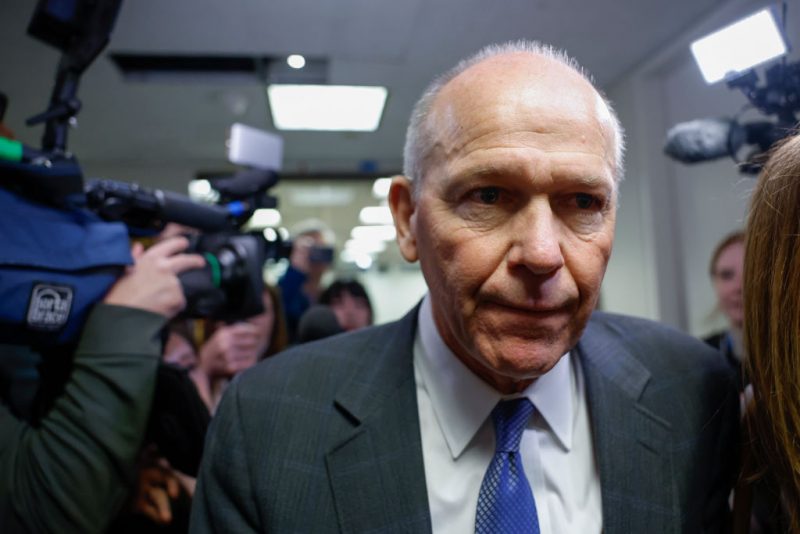
OAN’s James Meyers
8:19 AM -Monday, March 25, 2024
Amid all the airline incidents, Boeing CEO Dave Calhoun has announced he will be leaving his role at the end of the year and the company’s chairman of the board will also be stepping down this spring.
Stan Deal, the CEO and president of Boeing Commercial Airplanes, has retired effective immediately. The company’s chairman, Larry Kellner, is stepping down from the board of directors in May and will be succeeded by Boeing board member and former Qualcomm CEO Steve Mollenkopf.
“President and CEO Dave Calhoun today announced his decision to step down as CEO at the end of 2024, and he will continue to lead Boeing through the year to complete the critical work underway to stabilize and position the company for the future,” Boeing said in a statement.
Advertisement
The announcements come after last week, The Wall Street Journal reported that a group of CEOs from U.S.-based airlines requested a meeting with Boeing’s board to express concerns over production issues.
With all the moves, the company’s stock, which has fallen by 25% since the start of the year, was up by more than 2.8% in pre-market trading on Monday.
In a letter to employees, posted on the Boeing website, Calhoun acknowledged that the Alaska Airlines incident that had the rear door plug come loose in mid-flight had changed the company drastically.
“As you all know, the Alaska Airlines Flight 1282 accident was a watershed moment for Boeing,” he wrote. “We must continue to respond to this accident with humility and complete transparency. We also must inculcate a total commitment to safety and quality at every level of our company.”
“The eyes of the world are on us,” he said, referring to ongoing efforts to reassure both the company’s airline customers and the flying public that its aircraft are safe.
The incident caused the grounding of multiple different models, which led to thousands of flights being canceled by Alaska and United Airlines.
During an interview with CNBC, Calhoun acknowledged the ongoing challenges at Boeing.
“We have this bad habit in our company,” he said, adding production pressures continued to weigh on performance. “When you move it down the line, it sends a message to your own people that ‘Wow, I guess the movement of the airplane is more important than the first time quality of the product.’ And we have got to get that in way more balanced. Without a doubt.”
The FAA announced during their investigation of Boeing supplier Spirit AeroSystems in response to the door plug blowout, the agency revealed that they found mechanics were using hotel key cards and liquid dish soap as makeshift tools to test compliance.
Additionally, the agency said that it “found multiple instances where the companies allegedly failed to comply with manufacturing quality control requirements.”
However, days later, the head of the NTSB, Jennifer Homendy, told Congress that Boeing did not fully cooperate with its investigation.
In the aftermath of the January incident, multiple Wall Street analysts said more drastic change was needed.
“How many times can ‘won’t happen again’ happen again?” Bank of America Corp. analyst Ronald Epstein wrote in a report in January.
“Both Boeing and [Boeing parts supplier] Spirit [AeroSystems] need a drastic cultural overhaul. This cultural change won’t come from FAA mandates, congressional hearings, internal memos, or one-hour all hands meetings. For culture to move from corporate jargon to being embodied in the habits and minds of both workforces, we see it as necessary for Boeing and Spirit to drastically rethink the ways they have operated.”
Stay informed! Receive breaking news blasts directly to your inbox for free. Subscribe here. https://www.oann.com/alerts

